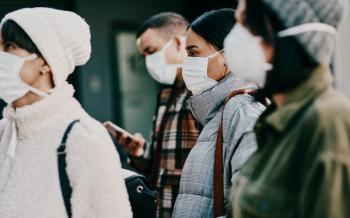
COVID-19 delays cancer screenings, deaths expected to rise in next 10 years
Cancer programs seek to remove barriers to screenings.
Cancer deaths are expected to increase over the next decade due to screening deficits caused by the COVID-19 pandemic, according to new research.
Around the nation, 748 accredited cancer programs reported
The
“From the perspective of people’s health, we are hopeful that this collaborative effort between the American College of Surgeons Cancer Programs and the American Cancer Society may have saved many patients from unnecessary suffering and death from cancer,” co-author Heidi Nelson, MD, FACS, said in a news release.
The study period took place from April 2021 through June 2021.
Using the results, the participating cancer programs initiated 814 quality improvement projects to address various barriers to screening, and are assessing the effects of those interventions.
If all participating facilities reach their target goals, the estimated numbers of potential additional monthly screening tests are:
- 57,141 for breast cancer
- 6,079 for colorectal cancer
- 4,280 for cervical cancer
- 1,744 for lung cancer
“From the perspective of what this means about our programs, we now know that we can turn to our accredited programs in times of crisis to help address large-scale cancer problems,” said Nelson, who is medical director of cancer programs at the American College of Surgeons. “Knowing how enthusiastic these accredited programs are for working collaboratively on national level problems, we expect to release one or two quality improvement projects each year going forward.”
Researchers did not see geographic differences based on the locations of cancer programs across the United States.
The researchers said the study was timely because the American Cancer Society's National Consortium for Cancer Screening and Care recently
Newsletter
Like what you’re reading? Subscribe to Dermatology Times for weekly updates on therapies, innovations, and real-world practice tips.











